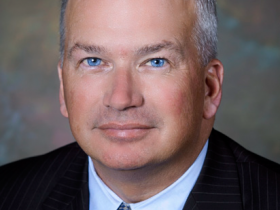Nine Bills That Got Killed
Why the legislature failed to pass laws on nine hot issues.
Here’s a guide to why some of the most controversial bills in the 2013-14 legislative session did not pass.
*Common Core Standards: Conservative Republicans wanted to create a panel to draft new academic standards for public schools, which could replace standards drafted nationally that are now being implemented across Wisconsin. Gov. Scott Walker encouraged this change, saying Wisconsin should have “tougher” standards. But GOP leaders of the legislature’s education committees, Sen. Luther Olsen and Rep. Steve Kestell, fought that change. They got help from State Superintendent of Public Instruction Tony Evers, who rallied teachers statewide against any move to usurp his authority to set those standards.
*Penalties for failing public, charter schools: How would you like to try and negotiate failing-school penalties with six Capitol power players: Legislative leaders. Walker’s office. The state Department of Public Instruction. Charter, public and private school advocates.
*Pre-empt local sand mining rules: Republicans started out vowing to cripple the ability of local governments to regulate the dozens of sand mines in western and central Wisconsin, which produce sand used in “fracking” underground oil and gas. But when local officials protested that this would be the latest in a string of changes that undermine their authority, Republican leaders and sand-industry lobbyists dialed their original plan back. Yet even that version died when the Wisconsin Towns Association denounced it.
*Doubling individual political donations: The $10,000 limit on what individuals can give to candidates for governor, and smaller limits for candidates for the Legislature, have not changed in 40 years. That was one reason the Assembly voted to double the maximum gifts. But it became just another idea that died in the Senate. And, how meaningful are limits anyway, since third-party groups that don’t have to disclose where they got their cash spend so much on targeted campaigns that candidates often lose control of the message?
*Tougher drunk driving laws: A package of Assembly-passed laws died in the Senate, amid fears of much higher court, jail and prison costs. And the Legislature never debated changing the law to make Wisconsin align with every other state that classifies drunk driving as a crime. It’s an issue in the campaign for attorney general, however.
One Assembly-passed bill would have required first-offense drunk drivers to appear in court. Others asked: Why they should be required to appear in court, when those charged with other traffic violations are not required to look at a judge?
*Sale of raw milk: Raw milk advocates were encouraged when senators took the time to draft different versions of a bill to legalize its sale, but their hopes were dashed when Senate Majority Leader Scott Fitzgerald said he needed Walker to signal that he would sign it into law, if it passed the Legislature. But the governor never sent that signal – maybe because his secretary of agriculture and physicians opposed the final version of the bill. Assembly leaders said they fought that fight first last time, so it was the Senate’s turn to go first.
*70 mph speed limit: Republican Rep. Paul Tittl got his bill raising the speed limit on interstate highways and freeways from 65 to 70 mph through the Assembly, but it died in the Senate. Why? Two major Wisconsin trucking firms – Marten Transport and Schneider National – opposed Tittl’s bill. And did it matter that the head of the State Patrol, which enforces the speed limit on the busiest highways, is the father of Scott Fitzgerald?
*Minimum-wage issues: The Democrats’ push to raise Wisconsin’s $7.25 minimum wage to $10.15 in phases was called a “job killing” plan by Republicans. But Republicans could not agree on their own plan to limit “living wage” ordinances in urban areas, including the ordinance passed by the Milwaukee County Board.
*Redistricting: Despite dozens of newspaper editorials, and calls from good-government groups, Republicans refused to even call a hearing on a plan to adopt Iowa’s system of independently drawing new Congressional and legislative district lines every 10 years. Assembly Speaker Robin Vos justified the inaction with two words – “nobody cares.” And, when Fitzgerald took questions at a Wisconsin Newspapers Association convention, he agreed.
Steven Walters is a senior producer for the nonprofit public affairs channel WisconsinEye. Email stevenscwalters@gmail.com
The State of Politics
-
RNC Brings Fame to Gen Z Party Leader
 Jul 15th, 2024 by Steven Walters
Jul 15th, 2024 by Steven Walters
-
Wisconsin’s Republican Roots Run Deep
 Jul 8th, 2024 by Steven Walters
Jul 8th, 2024 by Steven Walters
-
Feuding Supreme Court Justices Need a Break
 Jul 1st, 2024 by Steven Walters
Jul 1st, 2024 by Steven Walters





















